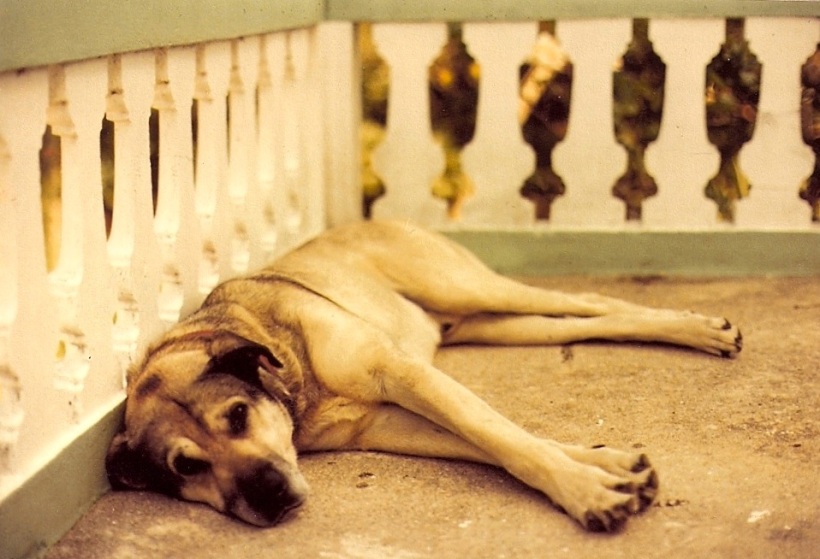Wednesdays, I explore the linguistic origins of the same word in different languages.
Someone recently told me that I was “very brave” for quitting a good job in the US and moving to Europe. I didn’t want to get into specifics with them, but once the idea was planted in my head by a friend of mine, leaving the US was the only way forward for me.
One of the big reasons was that I realized that my goals in life were 1) to be happy more often than not and 2) to have a dog. Professional accolades and upward mobility and the admiration of my peers are things I don’t care about at all and which consume the American way of life. Having a bigger house, a better car and the most prodigious children are all things I actively don’t want and which a lot of people obsess about.
But a dog would be good for me (requiring me to get up at regular times every day) and having one is something I’ve thought about for so long that I’ve decided on many different names. An early contender was Aslan, but I’m too old for Narnia now. Once in Spain, I thought Huxley would be funny since “H” is a hard sound for them to make, but in recent years I’ve settled on the perfect name for a dog, the only name that should ever be given to one really: Gos.
CAT → gos — mamífer domèstic de la família dels cànids. [Domesticated mammal from the Canidae family.] ORIGIN Derived from the sound “gus” or “kus” used to call dogs or when addressing dogs.
EN → dog — a domesticated carnivorous mammal that typically has a long snout, an acute sense of smell, and a barking, howling, or whining voice. ORIGIN Old English docga, of unknown origin.
ES → perro — Mamífero doméstico de la familia de los Cánidos, de tamaño, forma y pelaje muy diversos, según las razas. [Domesticated mammal of the Canidae family, of varying sizes, shapes and fur, according to breed.] ORIGIN Onomatopoeia from the sound made to call a dog, “perr perr.”
FR → chien — Mammifère (canidé) carnivore aux multiples races, caractérisé par sa facilité à être domestiqué, par une course rapide, un excellent odorat et par son cri spécifique, l’aboiement. [Canine mammal of various breeds, chracterized by how easily it is domesticated, by how quickly it runs, its excellent sense of smell and its unique call, the bark.] ORIGIN Latin canis [dog].
Catalan note: In many parts of Catalunya, people say ca instead of gos. This is derived from the Latin canis and is widely understood but is technically incorrect.
Spanish note: My BFF had a cat when we were little and I used to beckon her in the only way I knew how, by calling out Psst-psst, michiña which was how we did it on the farm. She taught me that in English, one says, “Here, kitty-kitty.” I don’t see how that makes more sense since cats sure as hell don’t recognize adverbs more than exclamations.
English note: Since I started running this feature, “unknown origin” has become one of my favorite phrases. Mysteries in mysteries! Get Edward E. Nigma on the case!
Today’s winner is Catalan, since it’s among the best words ever.


May 28, 2014 at 3:51 pm
So when are you going to realize your dog dream?
June 1, 2014 at 12:10 am
Considering I don’t yet own a bed, I’m still a little ways away. But I’m getting closer…